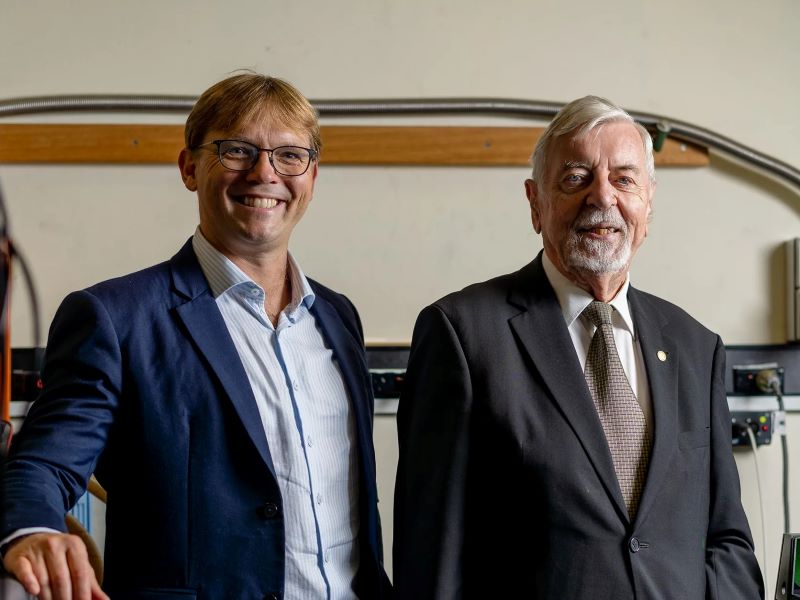Deakin University has given a chunk of the federal funding it received to improve research commercialisation to laser fusion energy start-up HB11 Energy. The company will lead a $20 million project to manufacture new fusion fuels at the university’s new advanced manufacturing ecosystem.
The university provided $6m million from its $50 million “Trailblazer” funding towards the new project to manufacture hydrogen-boron fusion fuels, with partners contributing the remaining $14 million.
HB11 Energy is a company founded in 2019 to commercialise the work of UNSW Emeritus Professor Heinrich Hora on using lasers to achieve fusion reaction without high temperatures.
The company claims its patented fusion process releases no radiation, and no dangerous waste while creating virtually limitless power.

HB11 Energy will partner with Deakin researchers at the University’s Recycling and Renewable Energy Commercialisation Hub (REACH) to manufacture at scale a graphene-like material and progress the manufacturing process for a recently discovered two-dimensional material called Borophene.
Hydrogen-boron reactions could provide large-scale power for base-load grid electricity or hydrogen generation, using fuels that are very similar to those used for hydrogen storage, according to the company, which claims the new fuel is “completely safe and abundant” relative to other fusion fuels.
Deakin University researchers led by Professor Ian Chen have demonstrated new graphene-like materials can be used for hydrogen storage for combustion application. It is believed to be the only material that can contain the optimal mix of hydrogen and boron for fusion energy generation.
“This is an important step in establishing Australia’s sovereign capability in manufacturing fusion fuels, to deploy the only truly safe, scalable, and extremely low-cost energy of the future,” Said HB11 Energy co-founder and managing director Dr Warren McKenzie.
Deakin and HB11 Energy partnered in 2021 on a government funded research project to develop novel fuel materials for a radiation-free, proton-boron fusion power source. The project has demonstrated fusion, according to HB11 Energy, but is yet to be published in peer-reviewed scientific literature.
Deakin received $50 million to set up the REACH project from the federal government’s university trailblazer program, part of the former-Coalition government’s $2 billion research commercialisation package.
RMIT, Swinburne the University of Southern Queensland, Federation University and 21 industry partners are involved in the Deakin project, which then-Prime Minister Scott Morrison said will generate 100 patents.
Deakin used one-fifth of the $50 million Trailblazer funding in June to secure battery IP from a US-owned private research entity.
Do you know more? Contact James Riley via Email.

